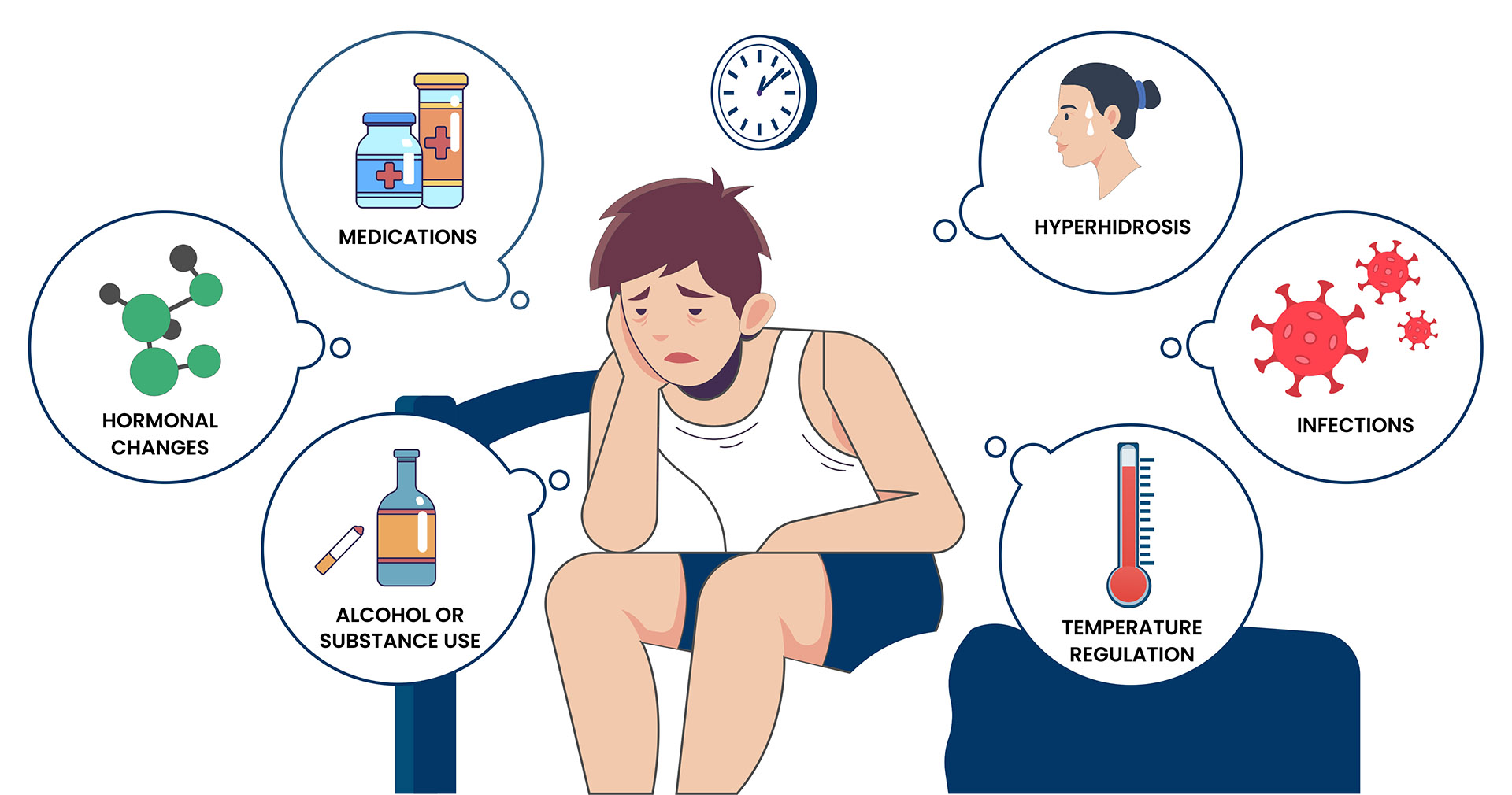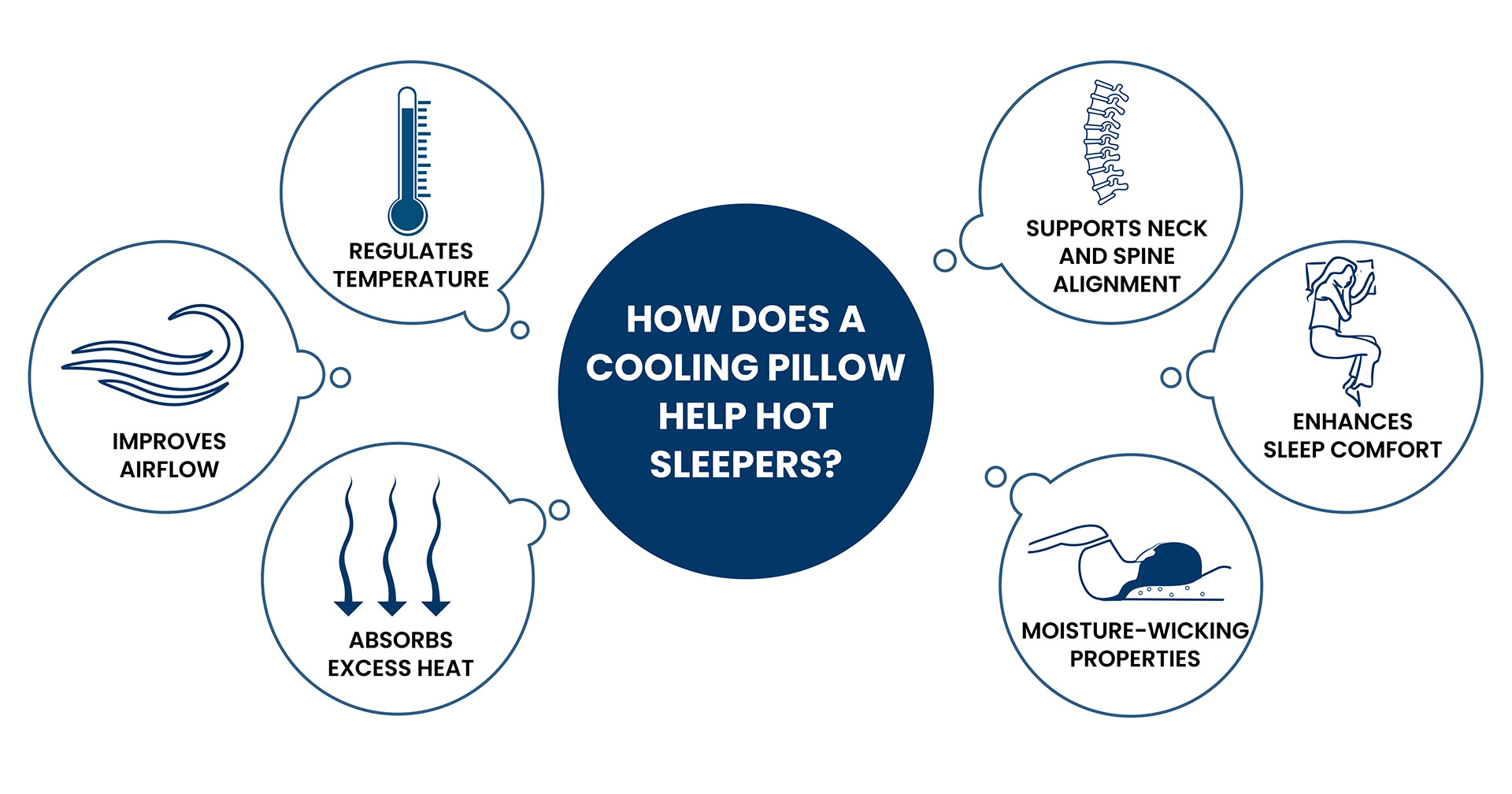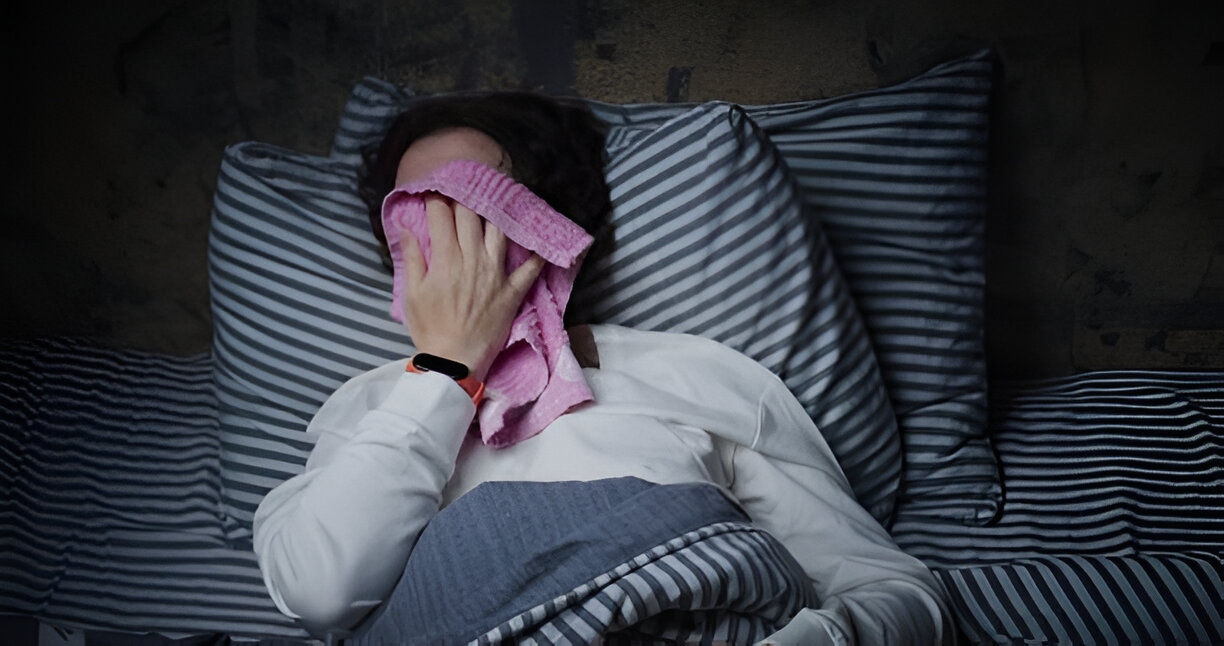Night sweats can make it hard to fall asleep, and you wake up tired the next day. For hot sleepers, this very common problem starts with the body's inability to regulate temperature during the night, which makes the individual uncomfortable and restless, thus a ‘hot sleeper.’ Thankfully, you can find some doable methods to keep yourself toasty and dry all night, fighting off night sweats and grabbing more peaceful days' sleep. This blog will cover some of the best techniques and tips specifically designed for hot sleepers that will help you learn how to cope with night sweats and wake up refreshed in the morning.
What Causes Nighttime Sweating?

Night sweating is a typical problem that many people around the globe face. Night sweats are a common complaint, with an estimated 3% of the population often having enough to seek medical help. In certain groups, such as women experiencing menopause, the rate of night sweats can be considerably higher, which is the case for about 75% of women during this life stage. These statistics demonstrate that night sweats are frequent among the general population, but their occurrence varies widely due to age, gender, and pre-existing medical conditions.
Common causes of sweating while sleeping include the following:
Hormonal Changes
Menopause: Night sweats are a common symptom of menopause due to fluctuating hormone levels, particularly estrogen. These hormonal changes can trigger hot flashes and night sweats, disrupting sleep patterns.
Hormone Disorders: Conditions like hyperthyroidism (overactive thyroid) can also lead to night sweats by affecting the body's temperature regulation.
Infections
Bacterial Infections: Certain bacterial infections, such as tuberculosis or endocarditis, can cause night sweats as a symptom.
Viral Infections: Viral illnesses like HIV/AIDS or certain types of cancers may also lead to night sweats.
Medications
Some medications, including antidepressants, hormone therapies (like hormone replacement therapy), and medicines for treating fever or infections, can cause night sweats as a side effect.
Medical Conditions
Sleep Disorders: Conditions such as obstructive sleep apnea (OSA) can disrupt sleep and lead to night sweats due to changes in breathing patterns and body temperature regulation. Sleep disorders are a common cause of hot sleepers.
Neurological Conditions: Conditions affecting the autonomic nervous system, such as autonomic dysreflexia, can cause night sweats.
Cancer: Certain types of cancer, such as lymphoma, can cause night sweats as a symptom, often accompanied by other symptoms like fever and weight loss. Endocrine Disorders: Disorders affecting the adrenal glands, such as pheochromocytoma, can lead to night sweats due to hormonal imbalances.
Psychological Factors
Anxiety: Stress and anxiety can trigger night sweats, as the body responds to psychological stressors by increasing sweat production.
Environmental Factors
Room Temperature: Sleeping in a warm or poorly ventilated room can contribute to night sweats, especially for individuals naturally predisposed to heat sensitivity.

Tips to Sleep Cool for Hot Sleepers
Staying cool at night can significantly improve sleep quality and comfort for hot sleepers. Here are some practical tips to help you sleep cool:
Choose Breathable Bedding: For your sheets and pajamas, opt for lightweight and breathable fabrics such as cotton or linen. These materials allow for better air circulation and help wick away moisture.
Use a Cooling Mattress or Mattress Topper: Invest in a mattress or mattress topper to promote airflow and dissipate heat. Materials like gel-infused foam or latex can provide cooling benefits.
Adjust Room Temperature: Keep your bedroom cool by using fans, air conditioning, or opening windows to improve ventilation. Aim for a comfortable temperature between 60-67°F (15 and 19°C).
Take a Cool Shower Before Bed: Lower your body temperature by taking a lukewarm or cool shower before bedtime. This can help you feel refreshed and ready for sleep.
Limit Heat Sources in the Bedroom: Minimize heat-generating devices such as lamps or electronics in your bedroom. These can contribute to a warmer environment, making it harder to sleep cool.
Use Cool Gel or Water-Based Pillows: Opt for pillows filled with cooling gel or water-based materials that dissipate heat and provide better neck support.
Stay Hydrated Throughout the Day: Drink plenty of water to stay hydrated. This can help regulate your body temperature more effectively at night.
Sleep in Lightweight Clothing: Wear loose-fitting, lightweight sleepwear made from breathable fabrics to promote air circulation and prevent overheating.
Create a Bedtime Routine: Establish a relaxing routine to signal your body that it's time to wind down. This can include activities like reading or practicing relaxation techniques.
Use Cool Packs or Cooling Sheets: Consider using cool packs or the best cooling sheets designed to provide targeted cooling relief, especially for areas prone to overheating, like the neck and head.
Does a Cooling Pillow help Hot Sleepers?
Yes, the cooling pillow is perfect for hot sleepers. The best cooling pillow is designed especially to combat heat during sleep. The coolest pillows typically incorporate clever materials like gel-infused memory foam or breathable fabrics that help control the temperature.
The pillows that remove the heat more effectively than those of the standard type by dispersing it create a lower temperature near the heads and necks of sleepers, allowing them to get a more comfortable rest.
A firm cooling pillow is an excellent option for people who often feel discomfort or night sweats due to heat buildup. Being more comfortable throughout the night can result in less tossing and turning, which in turn can provide a calmer sleep. Cooling pillowcases are also helpful when paired with best-rated cooling pillows.
These fatigue-relieving products and providing much-needed coolness and support also improve overall well-being. With a lower chance of waking up because of the discomfort of getting too hot, these pillows aid hot sleepers in having a more sustained and revitalizing sleep.
Final Thoughts
Struggling with night sweats is a situation that leads to irritation, and various remedies are available for it. By using the following tricks, like breathable bedding, the modification of room temperature, and the addition of a cooling body pillow, a person can make their night more comfortable. Also, a cooling memory foam pillow can effectively regulate the temperature and provide enough support. You can deal with night sweats by utilizing the right tools and techniques to start your day energetically and full of energy. Don’t allow the night sweats to ruin your sleep; Do something proactive to make your sleep cooler and better.













